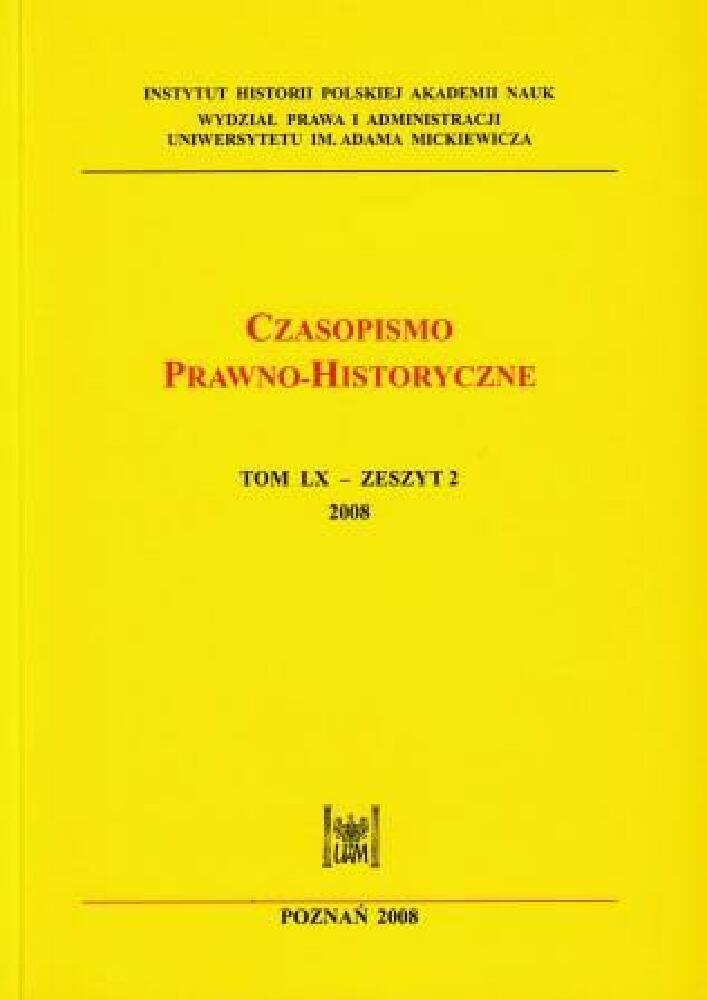Abstract
The present study gives an account of criminal law regulations in Ancient Egypt based on sources form the New Kingdom period (16-11th centuries B.C.). The material analysed in the paper ranges from legislative acts (Horemheb's Decree and The Nauri Decree), through documents containing pleadings in particular scandalous cases such as the harem conspiracy against Ramesses III or thefts committed in West-Theban necropolis, and finally to sources concerning cases from everyday life, especially those from the workman's village at Deir el-Medîna. On that basis, the criminal law proceedings of Ancient Egypt in offences such as treason, murder, assault, theft as well as abuse or misuse of authority have been presented. The available sources show that, despite the absence of the general legal thought in Ancient Egypt, the Egyptians differentiated between criminal and civil law matters. The most important criteria of this distinction can be found, as it seems, in the type of procedure and the sort of punishment that was applied in cases analyzed.
Funding
Digitalisation and OA co-funded by the Minister of Education and Science (Poland) under contract no. BIBL/SP/0002/2023/1
License
Copyright by Faculty of Law and Administration, Adam Mickiewicz University, Poznań, 2008
OPEN ACCESS




